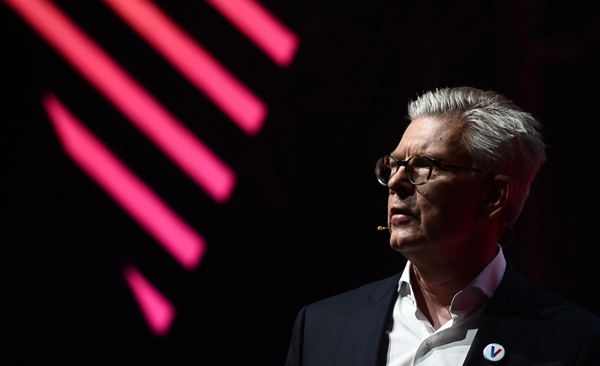L'Autorità Garante della Concorrenza e del Mercato, in data 26 luglio, ha autorizzato con condizioni…
Ericsson bemoans lack of European support on 5G

(Via POLITICO)
Amid a global storm over 5G security, Swedish telecom giant Ericsson feels abandoned by Europe’s politicians. One of the bloc’s last technology powerhouses, the company is grappling with a failure by EU politicians to support European businesses against foreign rivals that have the backing of their home governments.
“We survived 140 years, we’ll survive another 140. But we may need to do it by being stronger outside Europe than inside it,” Ericsson’s Chief Executive Officer Börje Ekholm told POLITICO on the sidelines of the recent Mobile World Congress in Shanghai. The frank comments underscore widening frustration among European industrialists and tech executives at a time when politicians are sounding the alarm about technological decline and a rising dependency on foreign companies.
So far Ericsson has held on to its global standing amid a rivalry with Chinese telecom giant Huawei, which faces new restrictions in the United States, Australia, Japan and, potentially, in European Union member countries in the coming months. But while Ericsson theoretically stands to gain from such restrictions, its Chinese rival remains as strong as ever, namely in European markets where the companies compete fiercely for contracts against each other, as well as against Finland’s Nokia.
Europe is making some efforts to protect homegrown business.
Amid growing calls for tougher trade restrictions led by French President Emmanuel Macron, the EU is working on trade defenses, competition tools and public procurement policies — including potential restrictions on Chinese firms — that match similar protective measures in the United States and China, and could one day help European tech companies. Yet most of these are only in the planning stages. Ericsson argues that for now, support for local enterprises remains weak in its home country of Sweden and across the European Union, bolstering the confidence of its rivals.
Ericsson is emerging from a deep financial dip. Its net sales took a dive in 2016 and again in 2017, after years of stagnation between 2011 and 2014. Last year Ericsson’s sales grew with 3 percent. In comparison, Huawei’s revenue tripled between 2013 and 2018, company figuressay.
Contributing to Ericsson’s struggles was the fact that European telecom operators like Deutsche Telekom, Vodafone, Telefónica and others appealed heavily to Huawei to install wireless 4G networks over local alternatives. Today, those same operators are banding together to keep the European market open for the Chinese giant.
Ericsson is now battling to maintain its global position. In an ever-fiercer battle for a share of the global 5G market, its Chinese rival is investing enormous resources in research and tailoring its attractively priced bids to European markets.
While Ekholm insists that his company is focused purely on business results, he said he was baffled by the lack of political support for firms like his. “There is a real issue,” he said.
Asked why he thinks European politicians are so squeamish about helping their own companies, he said: “I genuinely don’t know. And I don’t know if we can do anything about it.”
Leggi l’articolo completo su POLITICO.
Crediti foto: Philippe Lopez/AFP








